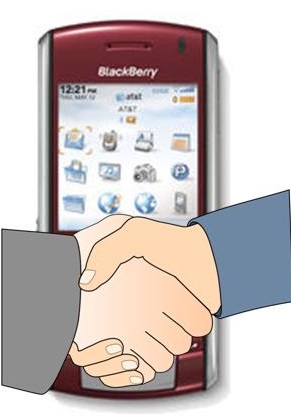Retailers are giving one final post-Christmas sales push to get the most out of the shopping season.
Each of the five highest ranked retailers in the Keynote Mobile Commerce Index have implemented strategies that have been designed to be able to reduce the length of time that it takes their m-sites to load.
Keynote says that these stores are working to make sure their sites load faster and more accurately.
This was the same number of retailers that were using their standard web shopping sites for this post Christmas holiday shopping season and that were working to make sure that their sites loaded well. Out of the five top mobile commerce retailers as ranked by Keynote Systems, four experienced only a small variation in the speed and size of their pages last week when compared to the week before. This, according to a mobile performance evangelist from Keynote, Abelardo Gonzalez. Moreover, the leading five retailers in last week’s index were all the top five in the week before, as well.
The retailers used proper mobile commerce page design practices to improve the experience.
 Gonzalez explained that “The retailers took advantage of mobile page design web practices—such as minimizing the number of objects and page size—to deliver a consistent and reliable experience.” The only exception that he identified was in JCP.com, from J.C. Penney Co. Inc., which saw a slower load time and a larger page size and object count than it had the week before. Despite the fact that it had a slower load time, however, Keynote did point out that the site was able to load 100 percent of the time.
Gonzalez explained that “The retailers took advantage of mobile page design web practices—such as minimizing the number of objects and page size—to deliver a consistent and reliable experience.” The only exception that he identified was in JCP.com, from J.C. Penney Co. Inc., which saw a slower load time and a larger page size and object count than it had the week before. Despite the fact that it had a slower load time, however, Keynote did point out that the site was able to load 100 percent of the time.
J.C. Penney accomplished this goal through the use of a content delivery network. This firm, Akamai, was used to make certain that each of the elements of the page would render properly throughout the site. The reliability rating that this achieved for the site helped the company to keep its position among the top five retailers on the mobile commerce index. J.C. Penney’s position was second on the list, with a 100 percent success rate and a load time of 5.42 seconds, for a score of 935.
The struggling Canadian handset maker has partnered with the Taiwan based electronics manufacturer.
The latest headlines in BlackBerry technology news have revealed that the smartphone maker has now signed a strategic partnership with Foxconn that will last for the next five years.
The purpose of the new contract is to have the devices created for fast growing markets such as Indonesia.
This BlackBerry technology news has revealed one of the major steps that the company plans to take in order to turn around its current dire situation, as it looks toward the future. It is clear that it is looking toward new marketplaces, to make a greater impact in areas where growth is currently the fastest, such as Indonesia.
The BlackBerry technology news has also shown that Foxconn will do some of the company’s manufacturing.
 This five year contract will have Foxconn manufacturing BlackBerry branded mobile phones at a couple of its facilities that are located in Mexico and in Indonesia. This was revealed in a statement that was released at the end of last week. Although Foxconn may be making some of the devices that are being made, it BlackBerry will be holding onto all of its own intellectual property and will be providing product assurance on the devices that Foxconn has manufactured.
This five year contract will have Foxconn manufacturing BlackBerry branded mobile phones at a couple of its facilities that are located in Mexico and in Indonesia. This was revealed in a statement that was released at the end of last week. Although Foxconn may be making some of the devices that are being made, it BlackBerry will be holding onto all of its own intellectual property and will be providing product assurance on the devices that Foxconn has manufactured.
Foxconn currently holds the notable title of being the largest manufacturer on the globe for electronic products. At the time of the writing of this article, no additional details and none of the terms of this partnership had been revealed.
At the same time that this new partnership with Foxconn had been announced, it was also revealed another BlackBerry technology news headline that was far less promising for the company. In it was the statement of losses for the handset maker, which showed that in the third quarter of 2013, it lost 67 cents per share. Analysts had been predicting an average loss of only 46 cents, which shows that the reality was devastatingly worse than forecasts (which were compiled by Bloomberg). Throughout that quarter, the sales had been $1.19 billion, which was notably lower than predictions, which had seen the company bringing in $1.59 billion.
 Gonzalez explained that “The retailers took advantage of mobile page design web practices—such as minimizing the number of objects and page size—to deliver a consistent and reliable experience.” The only exception that he identified was in JCP.com, from J.C. Penney Co. Inc., which saw a slower load time and a larger page size and object count than it had the week before. Despite the fact that it had a slower load time, however, Keynote did point out that the site was able to load 100 percent of the time.
Gonzalez explained that “The retailers took advantage of mobile page design web practices—such as minimizing the number of objects and page size—to deliver a consistent and reliable experience.” The only exception that he identified was in JCP.com, from J.C. Penney Co. Inc., which saw a slower load time and a larger page size and object count than it had the week before. Despite the fact that it had a slower load time, however, Keynote did point out that the site was able to load 100 percent of the time.
 This five year contract will have Foxconn manufacturing BlackBerry branded mobile phones at a couple of its facilities that are located in Mexico and in Indonesia. This was revealed in a statement that was released at the end of last week. Although Foxconn may be making some of the devices that are being made, it BlackBerry will be holding onto all of its own intellectual property and will be providing product assurance on the devices that Foxconn has manufactured.
This five year contract will have Foxconn manufacturing BlackBerry branded mobile phones at a couple of its facilities that are located in Mexico and in Indonesia. This was revealed in a statement that was released at the end of last week. Although Foxconn may be making some of the devices that are being made, it BlackBerry will be holding onto all of its own intellectual property and will be providing product assurance on the devices that Foxconn has manufactured.